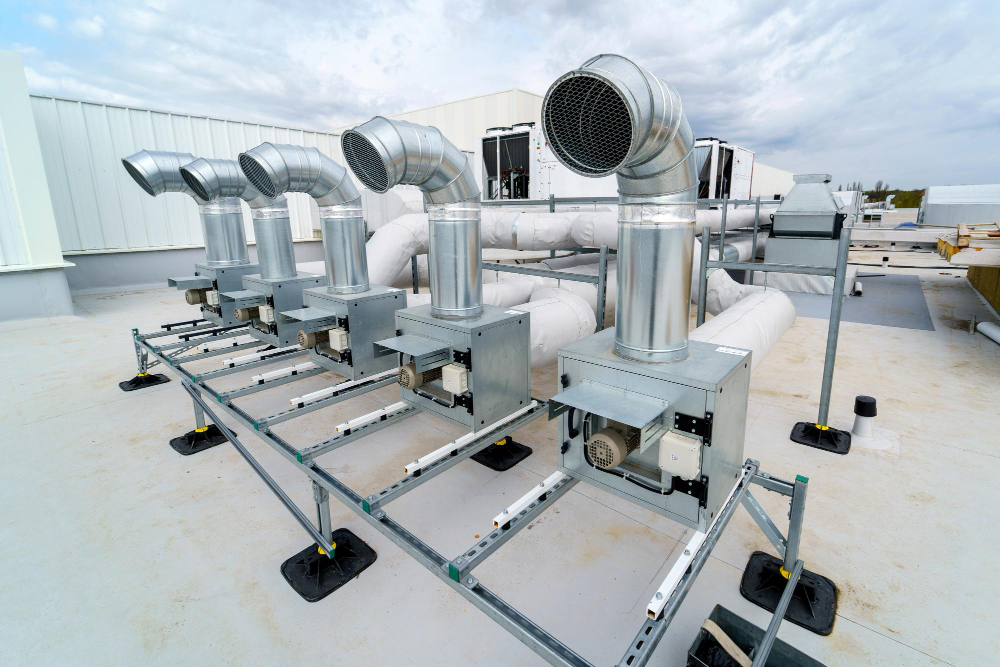
Building Services Engineering Degree Guide
Building Services Engineering, sometimes referred to as mechanical and electrical engineering for buildings,
is the branch of engineering that focuses on the design, installation, and maintenance of systems that make buildings comfortable, safe, and efficient. These systems include heating, ventilation, air conditioning (HVAC), lighting, power, water, drainage, fire protection, security, and increasingly, smart technologies and renewable energy systems.
With global interest in sustainability, energy efficiency, and low-carbon buildings, building services engineers play a critical role in shaping the future of the built environment.
This guide explores what it's like to study Building Services Engineering in the UK and compares how the subject is approached in Europe, Australia, New Zealand, Canada, and the USA.
Studying Building Services Engineering in the UK
The UK has a well-established tradition in building services engineering, supported by professional bodies such as the Chartered Institution of Building Services Engineers (CIBSE) and the Engineering Council. Degrees are structured to prepare students for industry challenges while supporting professional registration as Incorporated (IEng) or Chartered Engineers (CEng).
Degree Options:
-
BEng (Hons) Building Services Engineering – Three years (or four years in Scotland).
-
MEng (Hons) Building Services Engineering – Four years (or five years in Scotland), ideal for those aiming for Chartered Engineer status.
-
BSc (Hons) in Building Services Engineering Technology or Sustainable Building Services – More applied and practice-based, often offered through polytechnics or modern universities.
What You’ll Study:
-
HVAC systems design and controls
-
Electrical systems and lighting design
-
Plumbing, water, and drainage systems
-
Renewable energy integration (solar PV, heat pumps)
-
Building automation and control systems (BMS)
-
Energy modelling and performance analysis
-
Sustainable and low-carbon design principles
Most programmes include CAD, BIM (Building Information Modelling), and software training relevant to building design and simulation (such as Revit, IES, or AutoCAD).
Entry Requirements:
-
A-levels (usually including Maths or a related science subject)
-
BTECs in engineering or construction-related subjects
-
GCSEs in Maths, English, and Science
Professional Accreditation:
-
Many UK courses are accredited by CIBSE and the Institution of Engineering and Technology (IET)
-
Graduates can work towards Incorporated Engineer (IEng) or Chartered Engineer (CEng) status through the Engineering Council
Career Opportunities:
-
Building Services Engineer (mechanical or electrical)
-
HVAC Design Engineer
-
Energy Consultant
-
Sustainability Engineer
-
Lighting Designer
-
Facilities or Maintenance Engineer
Employment is available in consultancy firms, construction companies, property developers, MEP contractors, and increasingly in environmental and energy consultancy.
Studying Building Services Engineering in Europe
Across Europe, the study of building services engineering is often integrated within broader mechanical engineering, electrical engineering, or building technology programmes. In many countries, the profession is referred to as technical building equipment, building technology, or building installations engineering.
Structure:
-
Most degrees follow the Bologna Process: a three-year bachelor’s followed by a two-year master’s
-
Programmes are offered at technical universities or universities of applied sciences
-
Many are taught in the national language, though English-language options are increasingly available
Examples:
-
Germany: Known for “Versorgungstechnik” or “Technische Gebäudeausrüstung” (technical building services). Strong emphasis on precision engineering and environmental design.
-
Netherlands: Offers English-taught bachelor’s degrees in Building Physics and Building Services, with a focus on sustainable and smart building systems.
-
Sweden and Finland: Offer advanced master’s programmes in energy-efficient building systems and HVAC engineering.
Students planning to work internationally should choose programmes aligned with recognised engineering bodies or those that support progression toward EUR ING or national chartership.
Studying Building Services Engineering in Australia
In Australia, Building Services Engineering is often studied as a specialisation within mechanical engineering, electrical engineering, or building and construction management degrees.
Study Routes:
-
Bachelor of Engineering (Mechanical or Electrical) with electives in HVAC, energy systems, or building services
-
Bachelor of Construction Management with technical systems modules
-
Postgraduate diplomas or master's degrees in energy-efficient buildings or sustainable engineering
Institutions such as RMIT University, University of New South Wales, and University of Melbourne offer relevant courses. Some universities also offer building design or services-specific diplomas through technical institutes.
Programmes are accredited by Engineers Australia, and qualifications are recognised globally through the Washington Accord.
Studying Building Services Engineering in New Zealand
In New Zealand, Building Services Engineering is taught under the umbrella of mechanical or electrical engineering at both university and polytechnic levels.
Pathways Include:
-
Bachelor of Engineering (Honours) in Mechanical or Electrical Engineering
-
Diploma in Building Services Engineering – A two-year applied qualification focused on HVAC, lighting, water, and fire systems
Institutions such as Ara Institute of Canterbury, Wintec, and Unitec offer practical programmes aligned with local industry needs.
While New Zealand doesn't offer a large number of specialist bachelor's degrees in building services, engineers can specialise through final-year projects.




